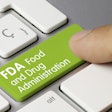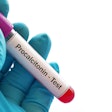
Healthcare professionals should use antibiotics and diagnostic testing judiciously during the early stages of an epidemic, despite a strong desire to do something for patients when treatment options are limited, according to the Society for Healthcare Epidemiology of America (SHEA).
In a statement published Wednesday in Infection Control & Hospital Epidemiology, SHEA provided strategies for hospitals and healthcare personnel to improve antibiotic prescribing when they encounter new infectious disease outbreaks.
A society representing more than 2,000 physicians and other healthcare professionals, SHEA further described circumstances when an antibiotic should be considered in a respiratory viral epidemic and outlined when diagnostic tests are appropriate.
"This statement addresses the inappropriate antibiotic prescribing occurring during the coronavirus 2019 pandemic (COVID-19) that has exacerbated another urgent public health crisis: antibiotic resistance in bacterial and fungal pathogens," the authors wrote.
According to healthcare experts, the problem of antimicrobial resistance has been exacerbated by the unnecessary prescription of antibiotics during the pandemic; the use of antibiotics when they are not needed leads to the growth of hard-to-treat resistant bacteria.
SHEA noted that a national report has found that 80% of patients hospitalized in the first six months of the COVID-19 pandemic were prescribed antibiotics on admission even though the medications were rarely indicated at that time.
"The COVID-19 pandemic highlights the human desire of healthcare personnel to intervene, particularly when a patient is severely ill, which can lead to a suspension of evidence-based medicine at the bedside," SHEA said in its report.
Uncertainty about the COVID-19 diagnosis was paired with a desire to help patients, concern about bacterial coinfections, and misleading results from a variety of diagnostic tests to contribute to the rise in overuse of antibiotics early in the pandemic, the statement said.
"The COVID-19 pandemic is ripe with lessons for future viral pandemics," said Dr. Tamar Barlam, lead author of the paper and chair of the SHEA Antimicrobial Stewardship Committee. "The overuse of antibiotics seen in the pandemic points to a need to strengthen antibiotic stewardship programs, so they are positioned to provide guidance across disciplines."
Diagnostic testing
The published statement provided recommendations for whether certain types of diagnostic tests should be used to determine if patients should be admitted to hospital. Among their recommendations, the authors said that healthcare personnel "may perform inflammatory marker tests at baseline, particularly in critically ill patients, including C-reactive protein, lactate dehydrogenase, D-dimer, serum ferritin, and high-sensitivity troponin."
However, these personnel should repeat laboratory testing only when it can provide actionable clinical data.
They should not use inflammatory markers as the basis for initiation of antibiotics or antifungal agents, the report said, because these markers may not be indicative of bacterial or fungal coinfection.
Further, procalcitonin should not be used routinely to aid in the decision to initiate antibiotics.
"Although procalcitonin (PCT) was a biomarker that was shown to differentiate viral and bacterial pneumonia in prepandemic studies, in COVID-19, it is frequently a marker of severe disease rather than bacterial coinfection," the authors wrote.
Healthcare personnel "should not obtain bacterial cultures or respiratory multiplex PCR tests for patients who do not have indicators consistent with bacterial infection, particularly those with stable clinical status in a non-ICU setting," they added.
SHEA's guidance follows a U.S. Centers for Disease Control and Prevention (CDC) report that concluded antimicrobial-resistant hospital-onset infections and deaths increased by at least 15% during the first year of the pandemic.
"As the pandemic pushed healthcare facilities, health departments, and communities near their breaking points in 2020, we saw a significant increase in antimicrobial use, difficulty in following infection prevention and control guidance, and a resulting increase in healthcare-associated, antimicrobial-resistant infections in U.S. hospitals," the CDC report said.



















